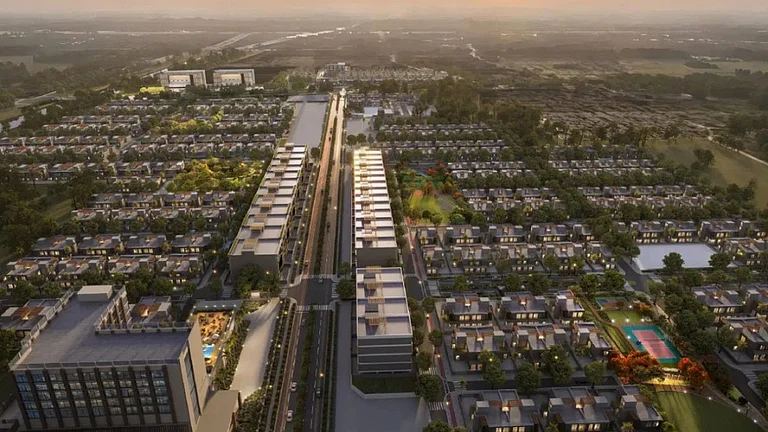The National Capital Region Transport Corporation (NCRTC), which operates rapid regional trains, said it has won the 'Best Transit Award' for seamless connectivity and the 'Overall Winner Award' at the UIC Sustainability Impact Awards 2024.
These awards, presented by the International Union of Railways in collaboration with the Sustainable Development Foundation, recognise NCRTC's commitment to sustainability and innovative public transit solutions, the corporation said.
NCRTC managing director Shalabh Goel said the awards are a testament to NCRTC's innovative approach to extensive multimodal integration, connecting RRTS stations with existing public transport modes such as MRTS, buses, and railway stations, along with various first- and last-mile connectivity options, according to an official statement.
"It also highlights our sustained focus on commuter-centricity through the adoption of advanced technological solutions, including the world's first-ever deployment of the European Train Control System (ETCS) Level 2 Hybrid and Level 3 signalling over LTE, which enables seamless interoperability across upcoming RRTS corridors," the release quoted Goel as saying.
"The recognition further serves as a tribute to the valuable contributions of various stakeholders, particularly the Government of India, which has developed transformative ecosystems that have facilitated the rapid implementation of such mobility solutions," he added.
By encouraging a shift from personal vehicles to public transport, the Delhi-Ghaziabad-Meerut RRTS corridor is expected to reduce 250,000 tonnes of vehicular emissions annually, the statement said.
The NCRTC's use of renewable energy in the RRTS project supports affordable and clean energy by reducing reliance on fossil fuels and aligns with climate action through significant cuts in greenhouse gas emissions, it said.
The corporation also said that as part of the National Solar Mission, it plans to generate 11 MW of solar power on station rooftops and depots over the next five years, enhancing system sustainability.
Promoting gender equality, NCRTC has implemented gender-sensitive design features like dedicated women's coaches and skill development programmes. Over 50 percent of train operators and station controllers are women, reflecting a strong commitment to inclusivity, it said.
Developed under the 'Make in India' initiative, the RRTS technology elevates the project to international standards, the NCRTC said.
It added that the Delhi-Meerut RRTS will integrate with other corridors like Delhi-Alwar and Delhi-Panipat, creating a large network of networks that would boost commuting efficiency, reduce congestion, and improve connectivity across the NCR.
Currently, a 42-km section of the RRTS between Sahibabad and Meerut South is operational, serving 9 stations. The entire Delhi-Ghaziabad-Meerut corridor, along with the Meerut Metro, is expected to be fully operational by June 2025.


























.jpg?w=200&auto=format%2Ccompress&fit=max)




